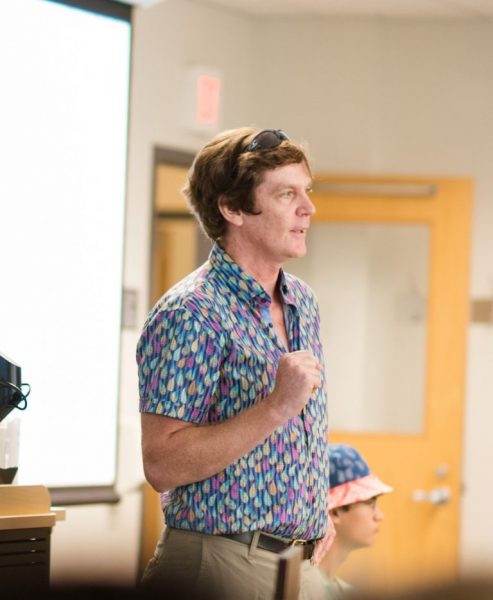
Dr. Wallace is a 2024 MASU Distinguished Professor of the Year, awarded by the Michigan Association of State Universities (MASU).
From the Institute of Computing and Cybersystems news blog.
While the tech sector rapidly expands, opportunities to enter the world of computing are limited to the technology and resources accessible to an individual. In Detroit, students in underserved communities are not afforded the opportunities that others entering computing may have. That’s where Dr. Charles Wallace and DAPCEP (Detroit Area Pre-College Engineering Program) aims to help.
The DAPCEP organization received a $250,000 donation from Ford in 2021 to accelerate STEM careers for underserved students in Detroit. Through this donation, students from underrepresented backgrounds can gain access to vital hands-on experience and internships (Source). This is Dr. Wallace’s third time participating in this program.
Michigan Tech, Michigan State, and the University of Michigan all provide short courses under the DAPCEP program. Michigan Tech’s six-week, online course focuses on computer science and programming. A primary focus for Wallace throughout the course at MTU is providing hands-on experience, giving Detroit-area students an opportunity to just go for it:
“Computing in general, and programming in particular, is an area that requires action: you can’t learn unless you try writing a program, fail, try again, fail again, and repeat — each time learning from your mistakes and “failing better” until you arrive at your goal.”
Dr. Wallace emphasizes that failure is a natural part of learning to program, and his course aims to teach students to “fail better” to achieve the end goal by learning from mistakes. By providing an opportunity where students are able to shoot their shot and pursue something complicated and maybe even scary like programming with essential guidance backing them along the way, their learning outcomes and motivation to learn further are greatly increased.
The course is based on the Beauty and Joy of Computing Curriculum, which Wallace puts his own spin on.
Dr. Wallace’s research is often rooted in developing accessible and assistive technologies with a human-centric approach. His interest spans from enhancing software usability and accessibility, especially for gerontechnology, to improving computing education to make exploring fields like programming available to a larger group – a need for the rapidly growing tech sector.
“In our short time together, I try to expose the students in the program to the analytical and creative aspects of building computer programs, and to the greater opportunities in computing careers.”